In our previous post, we introduced Plans and how establishments can set it up to meet different needs of users. This time, we will discuss use case scenarios to better illustrate the use of IG 4 Plans in different environments. We shall delve more on the most common use case scenario: Fixed Duration
Use Case 1: Unlimited
Unlimited Plan is typically used in corporate environment where there is no need to enforce quota. Staff users can get internet access whenever they are logged in the office network. This may also be applicable to campuses, serviced apartments and similar network setups where users often get unlimited Internet access.

Use Case 2: Fixed Duration
Fixed duration is often used in hotels and other visitor-based networks. Time count down usually starts from the guest’s first login and ends usually on the day the guest checks out.
Here is a sample list of plans for a hotel: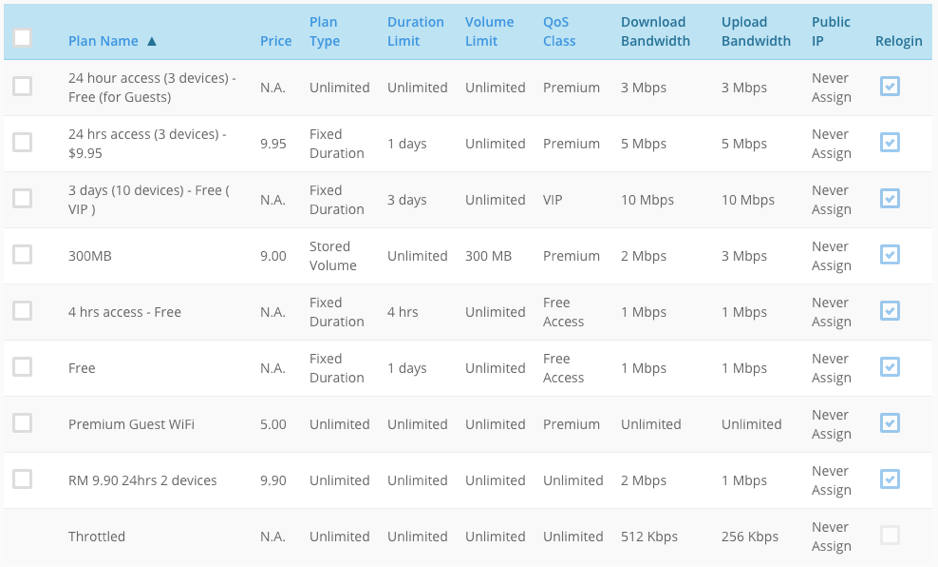 Guests typically get free WiFi and there are usually way more users on this plan type. Bandwidth, however, is not limitless. In order to ensure fair use and a generally good experience for all guests, free Internet access is limited at a reasonable speed. In our example, 3Mbps access is shared for guests with free access.
Guests typically get free WiFi and there are usually way more users on this plan type. Bandwidth, however, is not limitless. In order to ensure fair use and a generally good experience for all guests, free Internet access is limited at a reasonable speed. In our example, 3Mbps access is shared for guests with free access.
Hotels may want to provide faster Internet connection to VIPs and this can be done easily by simply selecting the VIP plan (e.g. 3 days (10 devices) – Free (VIP)). Here is an example of how you can customize the VIP plan further: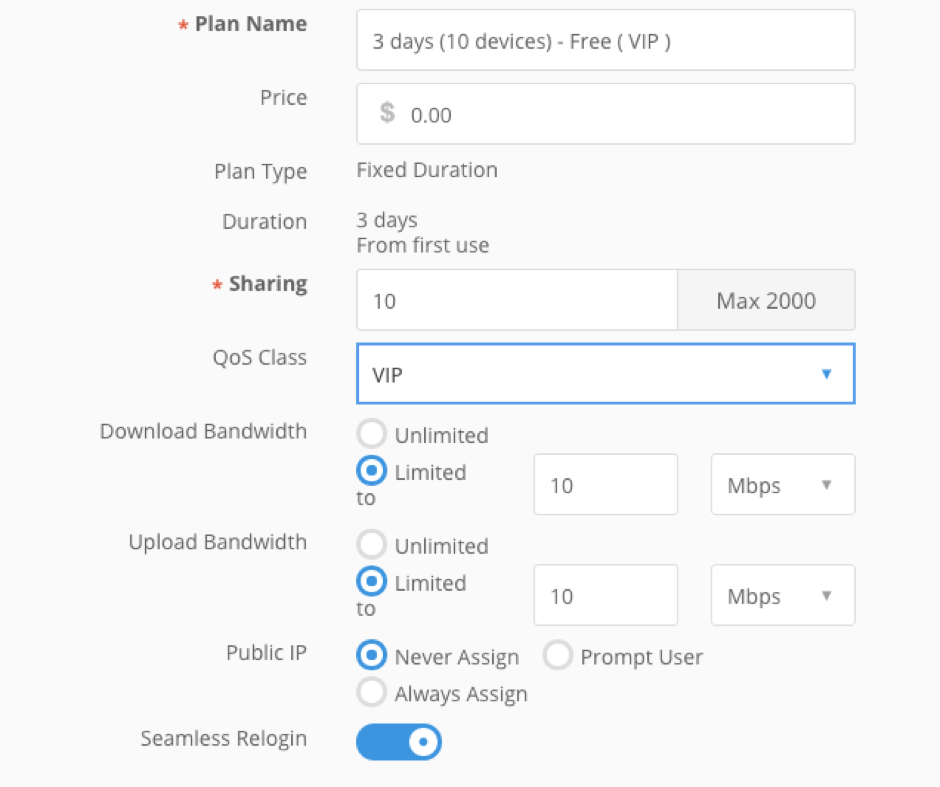 In this example, download and upload bandwidth are set to 10Mbps, which is higher than that of the regular guests with free access. VIPs can also use the same account for up to 10 devices (as set in this example) while the regular free access only allows account sharing for up to 3 devices. Seamless relogin is also enabled so that whenever the guest is within the coverage area, he/she need not go through the login page again to get WiFi connectivity.
In this example, download and upload bandwidth are set to 10Mbps, which is higher than that of the regular guests with free access. VIPs can also use the same account for up to 10 devices (as set in this example) while the regular free access only allows account sharing for up to 3 devices. Seamless relogin is also enabled so that whenever the guest is within the coverage area, he/she need not go through the login page again to get WiFi connectivity.
There are times when you may need to assign a public IP (e.g. webcasting) and you may opt to create a separate plan for it if your establishment or venue has a lot of guests who would request this.
Here is a sample diagram of a typical hospitality network with various zones:
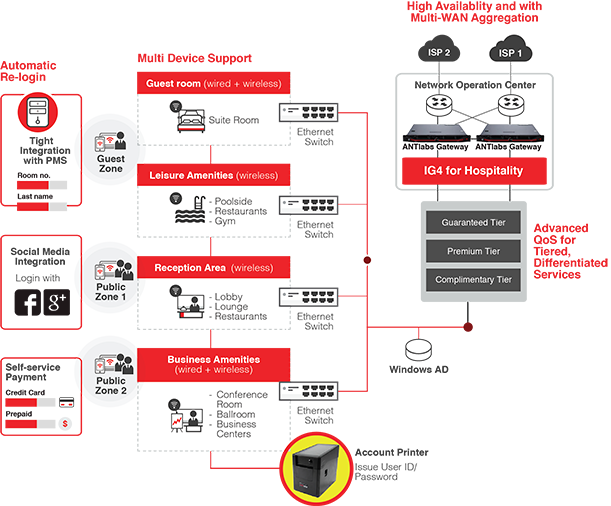
In our diagram, zones have different account provisioning and authentication methods. Guests can then choose the plans they want at the login page.
Use Case 3: Stored Duration
This scenario is comparable to mobile voice prepaid plans wherein balance is only deducted when used. This is often used with the auto-logout feature to prevent overcharging. Some establishments may offer prepaid Internet (e.g prepaid scratch cards) and go for this plan type so that their customers may get access only when needed and as long as he or she still has available balance. This may be used in transit lounges or any establishment where prepaid Internet access is more suitable.
In our example here, this Stored Duration plan grants 72 hours (3 days) to the user and there is no expiry date as to when this should be consumed: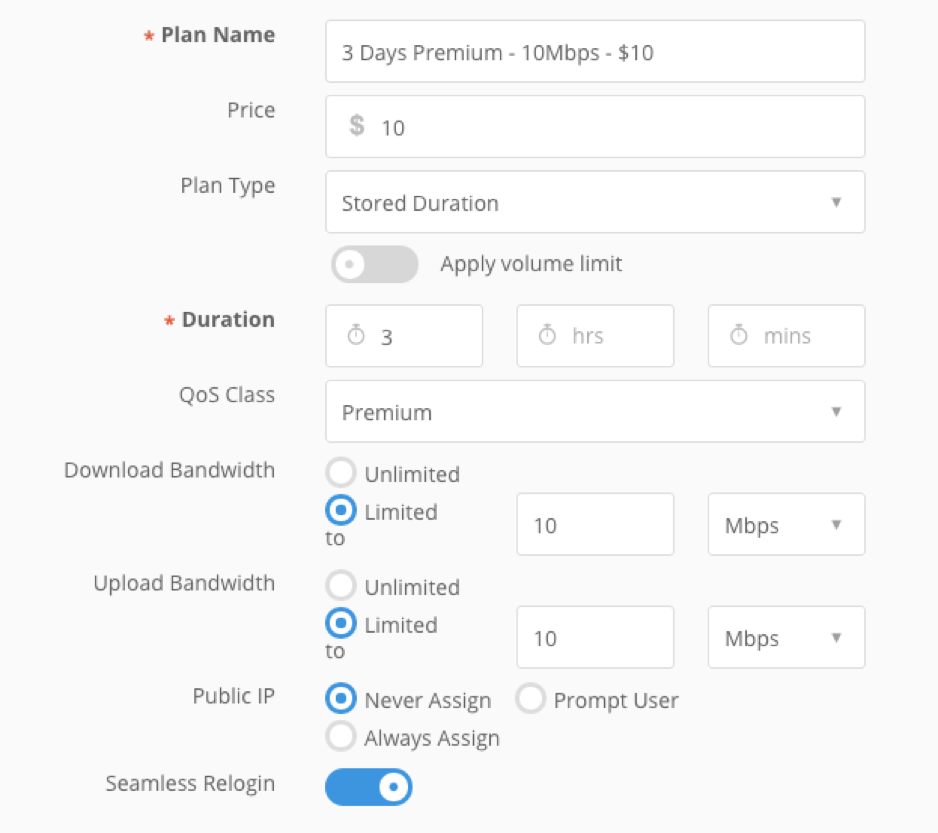
Use Case 4: Stored Volume
Stored Volume is comparable to mobile data prepaid usage where a user is given a specific volume for consumption. It Is common in Australia and the Middle East. For example, establishments would like to allocate 650Mb per user and then throttle the users down when it is exceeded or automatically log them out of the network. It is generally preferred to just throttle them down at minimum speed when users have hit their assigned data cap.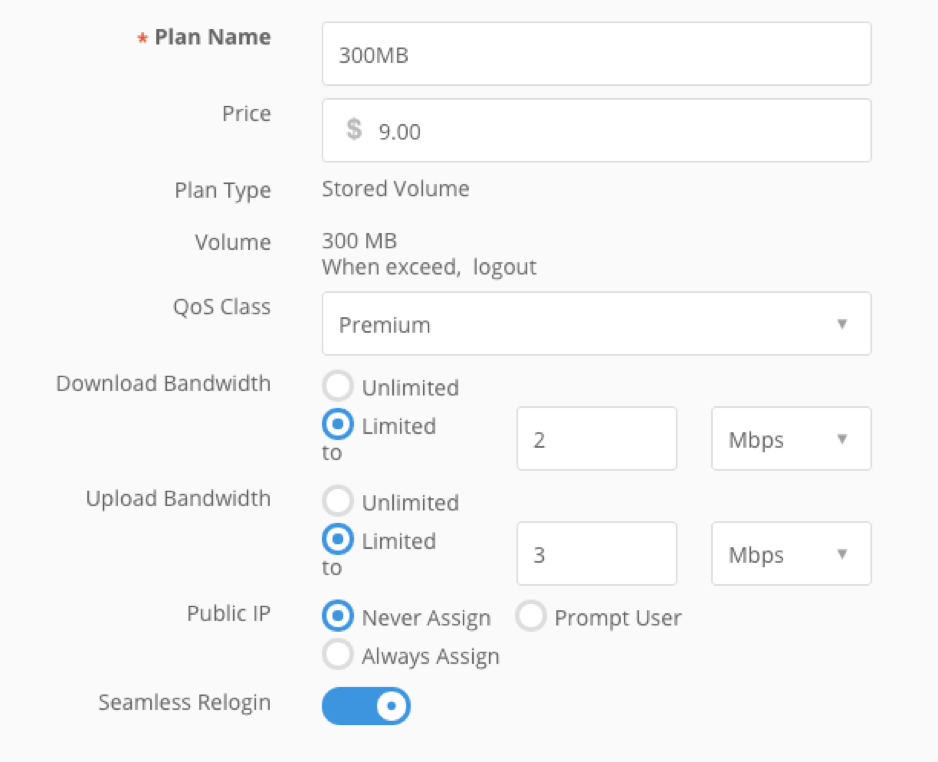
Conclusion
As shown in these use case scenarios, user experience can be improved through IG4’s intelligent bandwidth management. IG 4 enables establishments to meet the Internet connectivity needs of practically every kind of user and this is easily done by setting up Plans.
